Public urged to keep distance as dead minke whale washes up on beach
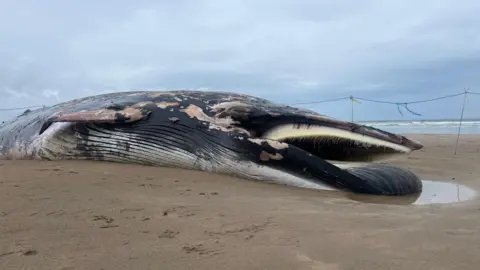 BBC
BBCA dead minke whale has washed up at Portstewart Strand in County Londonderry.
The Department of Agriculture, Environment and Rural Affairs (DAERA) said it happened on Sunday evening.
A spokesperson from the department said officials had been in touch with the National Trust and that assessments would be made on Monday.
The National Trust has asked the public to keep a distance from the carcass while it works with other agencies and experts "to determine next steps".
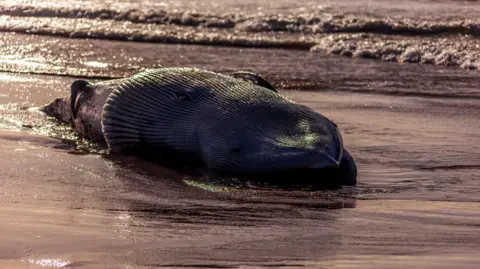 Brian Cunningham
Brian Cunningham"Until this process is safely complete, we urge the public to continue to follow all signage and keep a safe distance," a spokeswoman said.
Dog walkers are being asked to keep their pets on a lead and under control if walking on the strand.
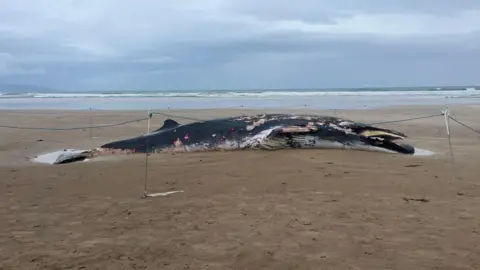
The National Trust spokeswoman added: "Decaying marine mammals pose a serious health risk. They can carry a range of diseases that are transmissible to humans and dogs."
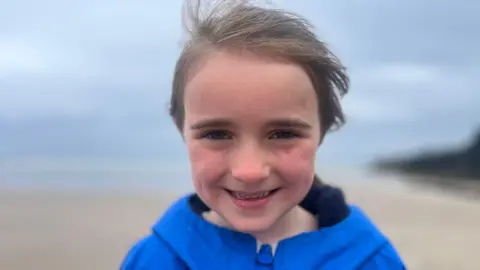
Six-year-old Caitlin was visiting the beach with her family when they came across the whale.
She told BBC News NI that it was "sad" to see the dead creature and she hoped it could be buried at the beach.
"It's very big and we can see his teeth," she said.
"I hope it gets buried here and then they put a wee cross on it because they know when it died. I can visit it any time."
David McCann, originally from Comber but visiting from London, said he had never seen anything like it before.
"It's quite amazing, an amazing creature. It's just a pity it's washed up," he said.

Whales beached on Portstewart Strand before
Laurence Ghisoiu, senior visitor experience officer for the National Trust, told BBC News NI that the organisation was working closely with agencies from Daera to ensure the whale was disposed of as quickly as possible.
"It is sad but it is nature," he said.
"Our main concern at the moment is the safety of our visitors so it is very important to keep away from it."
Mr Ghisoiu said the last time a whale was beached on Portstewart Strand was in 2015.
Back then, it was taken to landfill.

While minke whales are known to be among the smallest, they can grow to about 35 feet (10m) and weigh up to 20,000 pounds (9,000 kg).
The species can usually be seen between July and October in UK waters and live for up to 50 years.
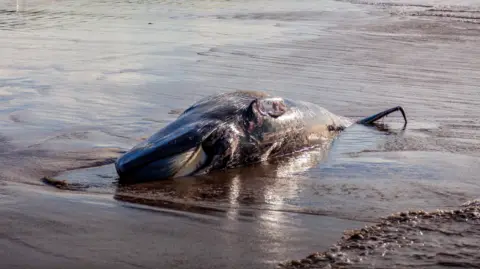 Brian Cunningham
Brian CunninghamWhales can come ashore for many reasons, including injury, illness, bad weather and navigational errors leading them into shallow water.
